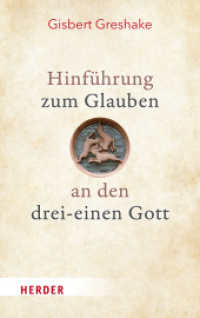- ホーム
- > 洋書
- > 英文書
- > Politics / International Relations
Full Description
Americans today are affectively polarized: they dislike and distrust those from the opposing political party more than they did in the past, with damaging consequences for their democracy. This Element tests one strategy for ameliorating such animus: having ordinary Democrats and Republicans come together for cross-party political discussions. Building on intergroup contact theory, the authors argue that such discussions will mitigate partisan animosity. Using an original experiment, they find strong support for this hypothesis - affective polarization falls substantially among subjects who participate in heterogeneous discussion (relative to those who participate in either homogeneous political discussion or an apolitical control). This Element also provides evidence for several of the mechanisms underlying these effects, and shows that they persist for at least one week after the initial experiment. These findings have considerable importance for efforts to ameliorate animus in the mass public, and for understanding American politics more broadly.
Contents
1. What Can We Do about Affective Polarization?; 2. Design of the Cross-Party Discussion Experiment; 3. Does Cross-Party Discussion Reduce Animus?; 4. Are There Downstream Effects to Reducing Partisan Animus?; 5. What Can We Learn from This?








